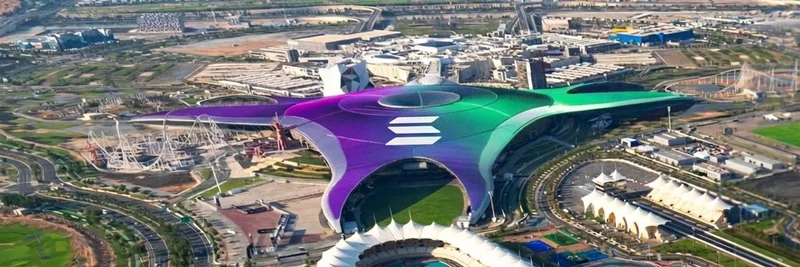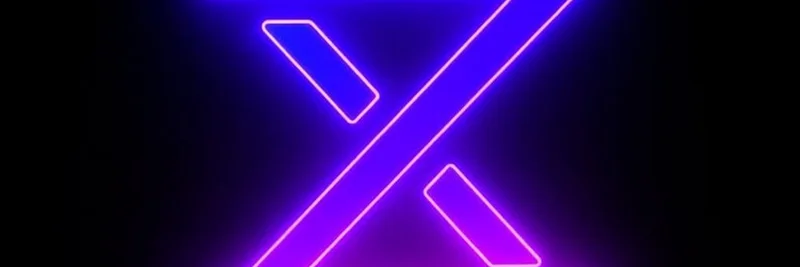RWA: Just Hype or the Next Big Thing for Meme Coin Degens?
Hey crypto fam! You might've heard the buzz around Real World Assets, or RWAs. It's been picking up steam lately, and today we're diving deep into whether this is just another crypto fad or something meme coin investors like us should actually care about.
YZi Labs just dropped some serious cash into Plume Network, an RWA platform, so it’s definitely time to break down what’s going on in the RWA space.
We're gonna tackle this in four parts:
- Are RWAs actually useful, or is it just another buzzword?
- What real-world stuff makes sense to put on the blockchain, and what doesn't?
- What were the old solutions for RWAs, and what's new on the scene?
- Is the RWA hype real, or are we just getting excited about nothing?
RWA: Real Use Case or Just Crypto Hype?
Let's be real – we're not talking about stablecoins backed by US bonds here. Those, like Usual and MKR, already kinda have their thing figured out. We're looking at stuff like tokenized stocks, specifically US stocks, which everyone on Crypto Twitter is yelling about.
Some folks are like, "Tokenized US stocks? Dumb idea. Anyone who wants US stocks already has a brokerage account. Crypto's way more volatile anyway!"
But hold up, I see it differently. Tokenized US stocks could actually be kinda genius for us crypto natives:
Opening Up Wall Street to the Crypto Masses
Yeah, sure, the crypto whales and finance bros are already using platforms like 富途 and FirstTrade to diversify into stocks, crypto, gold – the whole shebang. But most of us regular degens? We probably don't have US brokerage accounts. On-chain US stocks could be our no-BS, no-paperwork way to get a piece of the action.
Think about it – USDT and USDC are getting massive. That's dollar dominance spreading outside old-school finance. If crypto wallets become as easy as Alipay or WeChat Pay and go totally mainstream, you think Uncle Sam wouldn't want the whole world buying up US stocks with their stablecoins? Would people rather jump through hoops to buy their local, maybe kinda shaky, stocks, or just one-click buy into the "Magnificent Seven" tech giants like they're shopping on Amazon? Exactly.
Meme Gains to Tesla Dreams: Low Friction Finance
Imagine this: You just made bank on some random meme coin like Mubarak. Boom, 100K in profits! And you're eyeing Tesla, thinking it's bottomed out and ready for a pump. You wanna swap those meme gains for some TSLA.
Even if you do have a US stock account, you gotta off-ramp that 100K crypto to fiat, wire that fiat to your brokerage, and then buy the stock. That's like 3-5 business days, plus bank fees (back in 2017, wiring cash to FirstTrade from Australia took me days and cost a fortune!). Then, if Tesla moons and you wanna sell and ape back into crypto? Rinse and repeat that whole slow, expensive process.
Now, picture tokenized Tesla on-chain. You swap your meme coin profits for tokenized TSLA in seconds. The friction? Basically zero. We're talking a 10x, maybe 100x better experience.
What Kind of Real-World Stuff Should We Tokenize?
Okay, so some RWAs make sense. But what kind?
Treasury bills? Already proven, boring, let's skip those. What else? It really depends on who we're talking about.
RWA for the Average Crypto Joe (To C)
- Stocks: Hands down, the easiest win. Most regular folks haven’t touched private equity or fancy stuff. Tokenizing stocks? Simple to understand, instant appeal. Want some tokenized Tesla? Boom, done. For regular users, it's about opening up access to assets they couldn't easily buy before. This is about going from zero to one.
RWA for Big Players (To B)
- Way More Options: IP, royalties, invoices, you name it. For businesses, it's less about brand new access and more about making existing markets way smoother. Going from 1 to 100, cutting out the BS.
Think private equity. It's already traded between institutions and rich folks. Bridge loans on Centrifuge? Banks probably lend against those already. But the process is clunky, slow, and expensive. Putting it on-chain? Like PayFi vs. Swift – way faster, way better user experience.
Remember that RWA project from last year? Backed by a major US asset manager? They were planning to tokenize private equity from their platform, like SpaceX shares. Issue tokens on their own exchange for easy trading, then cash out when SpaceX IPOs. For To B, the investors are institutions and big clients, and the issuers are also limited. Like, unless you're sitting on a mountain of SpaceX stock, you can't just tokenize it. If you're just an STO/RWA platform trying to get SpaceX shareholders to tokenize with you, you’re facing a ton of legal and partnership headaches.
The Wild West of RWA: IP, Royalties, and Beyond
Then there’s the really out-there stuff, like Story Protocol tokenizing IP, or royalties from a book, movie box office revenue, game sales – all tokenized. Still super early days. Gotta experiment, see what sticks. Remember influencer tokens? Epic fail. Kaito (data marketplace)? Doing okay. Celebrity time tokens? Pumped and dumped faster than a meme coin. This stuff takes time to figure out.
Old vs. New RWA Solutions: Synthetics vs. Real Deal
Let's go back to tokenized US stocks.
Old School: Synthetics. Think Synthetix (SNX), Terra Mirror, and Gains Network (GNS). Basically, "fake" tokenized stocks. Didn't work. All three platforms ditched synthetic stocks.
- Why? Nobody was hyped about "fake" assets backed by stablecoins or platform tokens. WBTC (wrapped Bitcoin) is way more trusted than synthetic assets.
- Regulation Fear: Even though they were "fake," the SEC could still come knocking. Easier to just shut it down.
New Era: Regulation-Friendly and "Real" Trump era SEC is way less scary. Two new approaches for tokenized US stocks:
Broker-Dealer Route: Compliance is key. You buy a tokenized stock on-chain, and it instantly triggers a real stock purchase by a regulated broker off-chain. Like Robinhood, but on crypto rails. Citadel acts as the "market maker" behind the scenes.
- Pros: You're buying real stock, or at least a token 1:1 backed by real stock. Like WBTC but for stocks.
- Cons: Trading hours stuck to stock market hours, not 24/7 crypto time. Tax headaches likely.
Ondo Global Markets Model: Ondo is trying to be like stablecoin issuers for stocks. They want to authorize issuers to create tokenized stocks, kinda like Tether issues USDT or Circle issues USDC.
- Pros: More flexible, could break free from stock market hours. Issuers settle up later.
- Cons: Probably only for non-US users. US users blocked. Potential for different issuers creating different versions of the same tokenized stock (like different bridges for USDC, not compatible).
Plume Network: The RWA Framework: Platforms like Plume are building the infrastructure – KYC/AML, data storage, consensus, ZK proofs, etc. They want to make it easy for institutions to issue all sorts of tokenized RWAs. Which brings us back to the question – what assets should be tokenized?
RWA Momentum: Is the Hype Justified?
If you're paying attention, the RWA hype is definitely building. Over the last couple of months, things are heating up:
- Ondo Global Markets Launch: Ondo plans to launch their Global Market platform by the end of this year or early next year.
- Sui x WLFI: Sui blockchain is partnering with WLFI (likely Worldline Financial) for RWA.
- Frax Finance & CeDeFi: Frax is diving into "CeDeFi" with their frxUSD stablecoin and partnerships with BlackRock and Superstate.
- Ethena's Converge: Ethena launched Converge, focusing on stablecoins and tokenized assets as key blockchain use cases.
- Aave's Horizon Drama: Aave wants to launch a new coin, Horizon, focused on RWA. Caused a community uproar. Aave founder Stani had to clarify – Horizon is about boosting Aave's RWA business and could surpass Aave's current revenue in 5 years. Big ambitions!
- South Korea & STO Revival: South Korea's Financial Services Commission is planning to allow companies to trade virtual assets in phases starting in Feb 2025. Rumors are they might relaunch STOs (Security Token Offerings), which are basically RWAs but with a different name. "Corporate virtual asset trading" likely means tokenizing real-world assets for inter-company trading, not just crypto speculation.
- YZi Labs Invests in Plume: YZi Labs just invested in Plume Network. More smart money flowing into RWA infrastructure.
All this news creates serious momentum. We can't ignore it. My current take on AI + Crypto? PayFi + RWA + Web2.5 style consumer apps are the real near-term opportunities. AI + Crypto is still interesting, but more of a long-term "wait and see."
Stay tuned for my next piece on "ETH and Solana – Something Worth Talking About," and then a deeper dive into AI + Crypto to wrap up this series!



